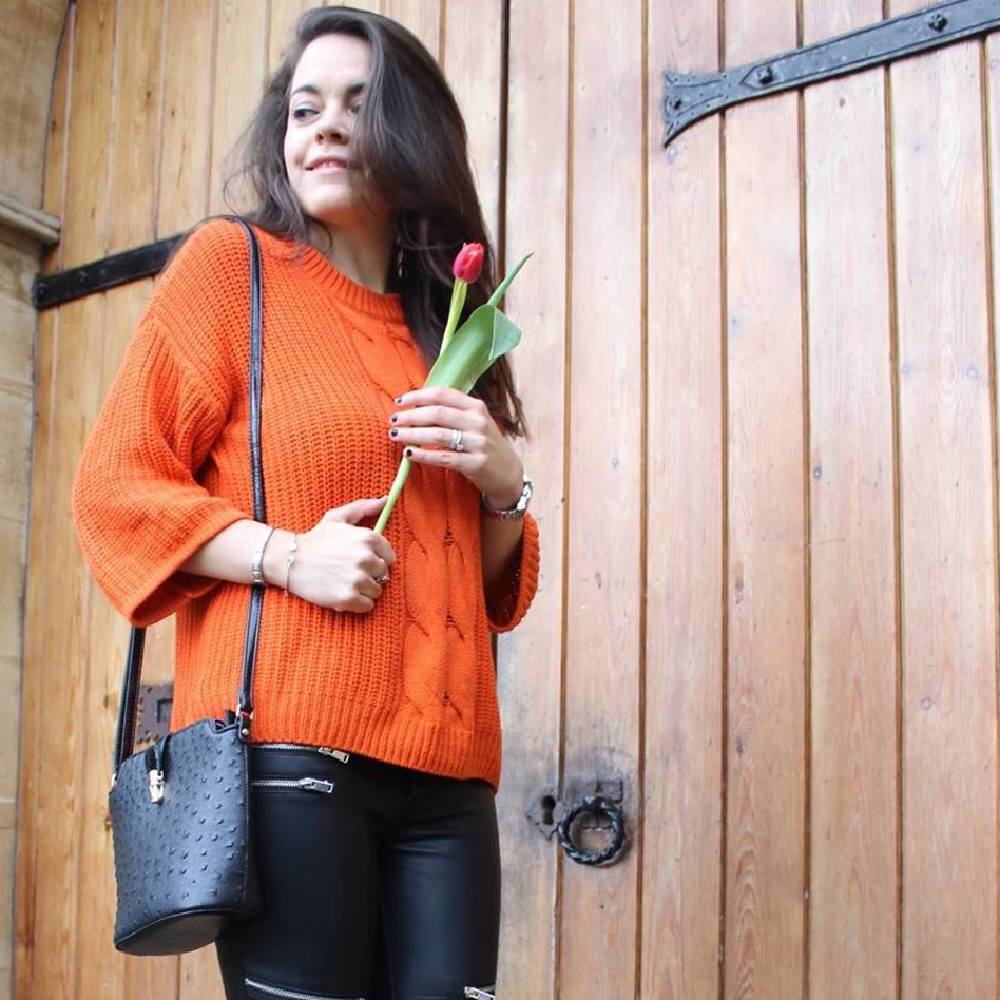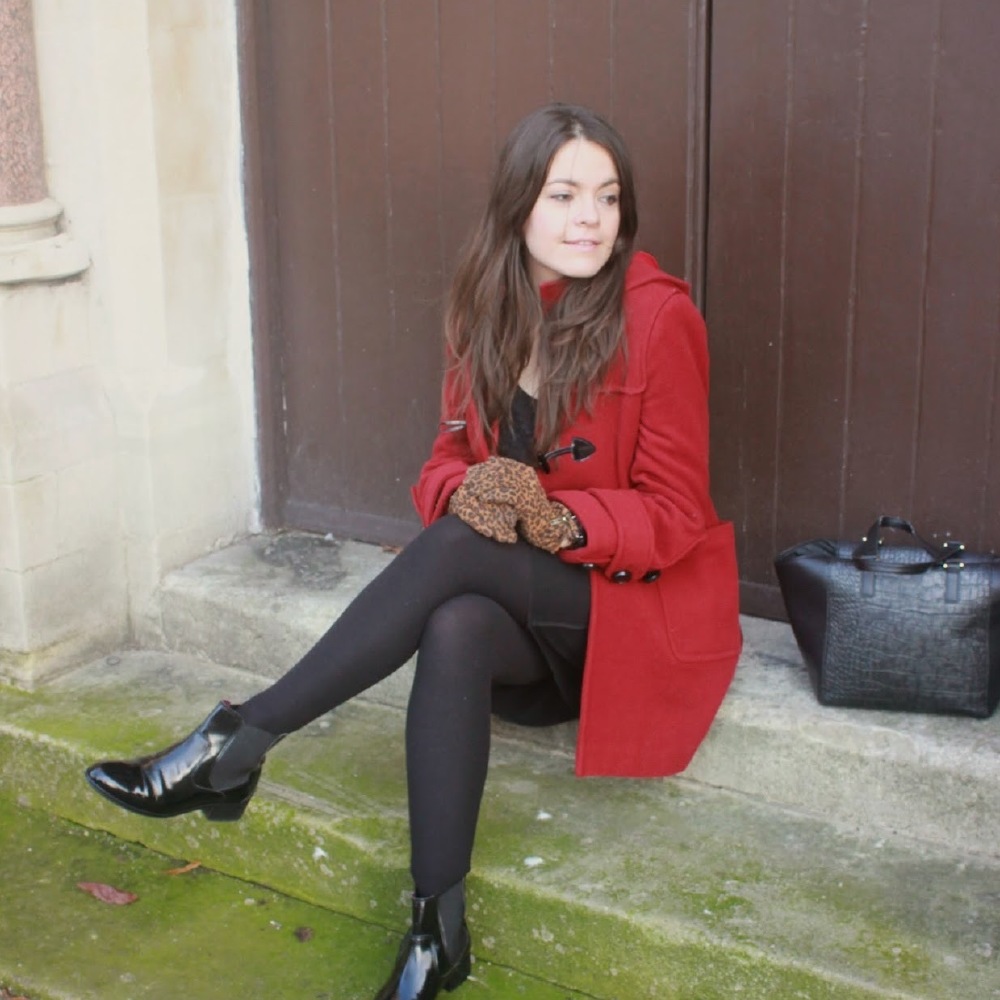Sascha Camilli is the Founder and Editor in Chief of Vilda Magazine- the world's first digital vegan fashion magazine. Vilda offers cruelty free style and aims to inspire compassionate living through fashion, beauty, travel and lifestyle.

Sascha Camilli
We caught up with her to ask her about the benefits of investing in cruelty free fashion and what the implications are if you don't.
What is cruelty free ethical fashion for those who don't know?
As vegans, we do not only exclude animal-derived foods from our diet, but also from our wardrobes. Animal skins have no place in fashion. Animals on fur farms live in cramped, filthy cages and are killed by poisoning, electrocution or are skinned alive. The leather industry is toxic to the environment; plus it harms workers (many of them children) and slaughters over 1 billion animals every year. The supply chain of the leather trade is anything but transparent: it's often impossible to trace the leather all the way back to the animal and you could very well be wearing cat or dog leather from China. Wool, silk, angora, down and other animal-derived materials are all products of crude and untimely death. Why should you wear animal skins when stylish, high-quality cruelty-free options abound?
Why is there a common misconception that unethical fashion is cheap fashion?
Cheap fashion is produced cheaply, which means less than acceptable conditions for the people in developing countries who are responsible for making the clothing. They don't receive a fair wage and their health and sometimes lives are put in danger due to unsafe working conditions. This, unfortunately, is not the case solely for cheap fashion. Many upscale brands, whose products come with a hefty price tag, work with the exact same factories and suppliers. Plus, so-called "luxury" brands routinely slaughter exotic animals such as crocodiles and ostriches for their accessories. These animals are treated like commodities and killed violently; often while they are still very young.
How can we find out where our clothes have come from?
Ask questions. Get in touch with brands and show that you care about how and where your clothes were made - and who made them. Don't assume that just because the products are not cheap or because the brand claims to be "ethical", the clothing you are buying was created in a way that didn't cause anyone suffering. Ask the brand how they are ethical: what do they actually do? When more people start caring and asking questions, brands will realise that we are not just blindly buying. Remember that by buying any animal-derived products, you are without a doubt contributing to cruelty. A recent PETA exposé found workers at an "ethical" wool supplier's farm kicking sheep, stomping on them and shearing them in a way that left them bleeding. The only way to be 100% sure that you are not causing animals any suffering is to choose vegan fashion from a brand that is transparent with their supply chain and production processes.
Are there any high street brands that are ethical or does it fall to ethical brands only to provide this type of clothing?
The problem with high-street fashion is the sheer volume at which consumers consume it. We no longer just have Spring/Summer and Autumn/Winter - there's now pre-fall, cruise, holiday collections and new designs in store pretty much every week. Magazines list the "top 10 new styles you HAVE to buy this season" and bloggers proudly show off their "hauls". Producing and consuming at this pace takes an incredible toll on the planet and on workers. Truly ethical shopping is first and foremost about buying less. Trends should be an inspiration for creating new looks with the clothes you already have. Shopping second-hand fashion is also a great idea - give pre-loved looks a new home, at no environmental cost.
To produce clothes so cheaply- what do workers endure before it reaches our stores?
Workers that produce industry-standard fashion receive a wage that's pretty much impossible to survive on. They work excruciatingly long hours with little or no breaks and are under constant pressure to produce more and more. Leather workers - many of whom are children - handle toxic, cancer-causing chemicals. A full 90% of tannery workers in Bangladesh die before age 50. Factory conditions are often far from the health and safety procedures that we in the West know, and tragedies such as Rana Plaza are sadly not one-offs.
Is ethical fashion budget friendly?
Like I said above, for me buying ethically is first and foremost about less shopping - and second-hand/vintage designs can be very budget-friendly! Ethical brands are usually mid-level - their prices are not Primark, but they're not Prada, either!
Why do people place such importance on clothes rather than experiences?
Good question and I must say that despite being the founding editor of a fashion magazine, I value the experiences I have in the clothes much more than the clothes themselves! For many people, style is a powerful form of self-expression. Fashion is creative - it's a way of projecting who we are to the world. Society's pressures to dress well and follow trends are sadly another reason, especially among a younger audience.
Are ethical clothes still in keeping with the latest fashion trends?
When it comes to many brands, yes! Ethical brand Reformation is always on top of trends, as is Vaute Couture, the first 100% vegan brand to show at New York Fashion Week.
What is your favourite piece of ethical clothing?
My Beyond Skin Chelsea boots! (featured in the picture below)

Tagged in PETA

